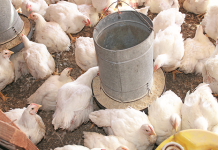Recent news reports about the Zulu monarch, King Goodwill Zwelithini, wanting more money to build a palace and refurbish a house for his latest wife are disturbing, to say the least. No less than R17 million was requested. Officially, the king did not demand this sum himself; officials from the KwaZulu-Natal government handled the request.
It was reported that the chief financial officer of the KwaZulu-Natal royal household asked for R12 million for the building of a new royal residence at the king’s palace in Nongoma and R5 million to refurbish a farmhouse, both of which would be for Queen Zola Mafu, Zwelithini’s sixth wife.
Someone is yet to convince me that I as a taxpayer should have to pay for these expenses. According to the City Press, the monarch received R57,7 million from the provincial government this year, and this will be increased to R64 million next year.
Land reform
It is beyond belief that government hands over such sums to an individual while claiming it does not have enough money to implement land reform properly. It seems our government is intent on following the example of our bankrupt Swazi neighbour, where millions of emalangeni are dished out to a royal family even though this practice is completely unsustainable.
What I also want to know as a taxpayer is this: how does giving Zwelithini’s wife a palace benefit me or anyone else who doesn’t live in KwaZulu-Natal? Come to that, how does it benefit those who do live in Nongoma and rural KZN? I know several people who left Nongoma for a better life in Gauteng. The land they left, which is under the control of rural kings and chiefs, remains underdeveloped.
Despite our taxes, the local governments and municipalities are failing to maintain the facilities, such as roads, that are already in place, let alone build the new services that are so desperately required. So why do we pay so much money? And where is it all going? An additional but related problem is that government does not seem to know how to address the issue of communal land. Even the Green Paper is unclear on how it ought to be tackled.
According to estimates of the National Emergent Red Meat Producers’ Organisation, a mere 5% of smallholder farmers own their farms, about 15% are leasing, and a staggering 80% are on communal land – with its numerous problems. Chief among these is lack of security of tenure: the land does not belong to farmers and they can do nothing with it without the local chiefs’ permission. One result of this is that less than half the land is utilised.
Most of it lies fallow or is encroached by bush, and that which is used is often overgrazed and suffering from soil erosion, due to poor land use management. So, there’s no money for land reform. No political will to improve a system that could improve the lives of thousands of desperately poor rural people. And no hope that any of this will change in the near future. Yet soon, the contractors’ trucks will be thundering through these same lands, carrying building materials and luxurious fittings for Queen Zola Mafu’s new mansions.













